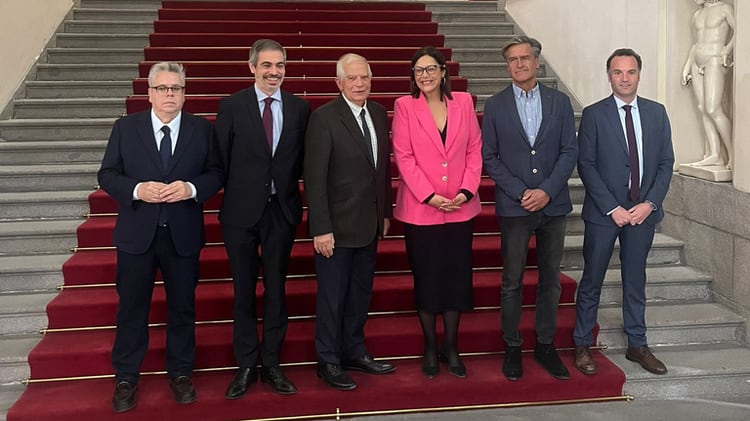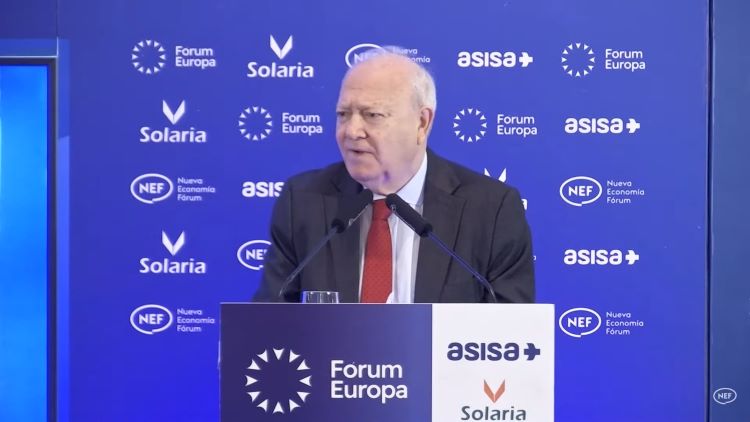Luis Ayllón
The High Representative of the EU for Foreign Affairs and Security Policy, Josep Borrell, announced yesterday in Madrid that the Twenty-seven have approved providing the European Diplomatic Academy with stable and regular funding, thus consolidating the pilot project launched at the end of August 2022.
Borrell made the announcement at an event held at the Center for Political and Constitutional Studies, in Madrid, organized by the Elcano Royal Institute and Cidob, under the coordination of the socialist MEP Nacho Sánchez Amor, who has been the main promoter of the initiative of the Diplomatic School, in collaboration with the secretary general of the European External Action Service and former ambassador of Italy in Madrid, Stefano Sannino.
Until now, the European Diplomatic Academy received specific contributions to develop the pilot project that has operated for nearly two years at the European College of Bruges (Belgium), under the direction of its rector and former high representative Federica Mogherini.
Since then, the Academy has been training young diplomats selected by their own countries, including some from countries that are not yet members, as well as officials from European institutions.
Yesterday, in his speech, Borrell reviewed the current situation in the world and the challenges that Europe faces, as well as the problems that the Union has in acting in a common manner, due to the need for unanimity in this field and the possibility of a single State to stop this possible action.
He regretted that these differences are also sometimes reflected in the diplomatic services that each country has, and that they think more about their own interests than those of the Union as a whole, which – in his opinion – prevents Europeans from having a strategic culture. common.
“Europe,” he stated, “must have a common vision of the world and we must try to ensure that our young diplomats can conceive of that common objective. “We have to train diplomats who address problems from a European perspective, going beyond the national vision.”
For this reason, Borrell considered it very useful to have an Academy of European Diplomacy, which leads young diplomats to think that it is possible to make national and community interests compatible. “Our diplomats,” he said, “must be imbued with the European spirit.”
After indicating that, from now on, the States will have to provide the necessary resources for the functioning of the Academy, he stressed that it arrives “at a decisive moment” and with the desire to be something that lasts over time.
“We cannot depend only on the juxtaposition of national diplomatic services,” he concluded. A common diplomacy is more than the interaction of the 27 services of each country. It is a particular way of doing things.”
After Borrell’s words, and in the presence of numerous European ambassadors, a debate moderated by Ignacio Molina, principal researcher at Elcano, took place; and with the participation of Federica Mogherini; Fernando Sampedro, State Secretary for the European Union; Paula Lamoso, professor of international studies at Loyola University; and Pol Morillas, director of Cidob.
The event was closed by Nacho Sánchez Amor, who recalled the journey taken since the beginning of the initiative and explained the fruits expected from having an EU training center for young diplomats.







